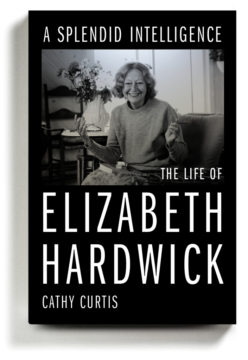Jennifer Szalai in The New York Times:
 To be a literary biographer is to court the extravagant ridicule of the very people you write about. For all of the salutary services a writer’s biography can offer — the tracing of the life, the contextualizing of the work, the resuscitation of a reputation and the deliverance from neglect — the biographer has been derided as a “post-mortem exploiter” (Henry James) and a “professional burglar” (Janet Malcolm).
To be a literary biographer is to court the extravagant ridicule of the very people you write about. For all of the salutary services a writer’s biography can offer — the tracing of the life, the contextualizing of the work, the resuscitation of a reputation and the deliverance from neglect — the biographer has been derided as a “post-mortem exploiter” (Henry James) and a “professional burglar” (Janet Malcolm).
The critic Elizabeth Hardwick called biography “a scrofulous cottage industry,” adding that it was rarely redeemed by “some equity between the subject and the author.” One biographer of Ernest Hemingway, Hardwick wrote, seemed so enamored of “his access to the raw materials” that he produced “only an accumulation, a heap.” Similarly, a book about Katherine Anne Porter was larded with “an accumulation of the facts,” which had “the effect of a crushing army.”
A warning, then, was probably in order for Cathy Curtis, the author of “A Splendid Intelligence: The Life of Elizabeth Hardwick.”
…The ’70s turned out to be an extraordinarily productive time for Hardwick — a decade when she wrote the essays on women and literature that were collected in “Seduction and Betrayal,” and when she polished the scenes that she collaged into “Sleepless Nights.” Curtis assiduously chronicles the literary panels, the gossip and the ailments of Hardwick’s later years, before she died in 2007, observing the rhythms of Hardwick’s work while never quite falling into sync with them. But then a march is different from a dance, even if each has its own choreography. When Hardwick was in her late 80s and still writing, she was asked why writers stop. “Writing is so hard,” she said. “It’s the only time in your life when you have to think.”
More here.
